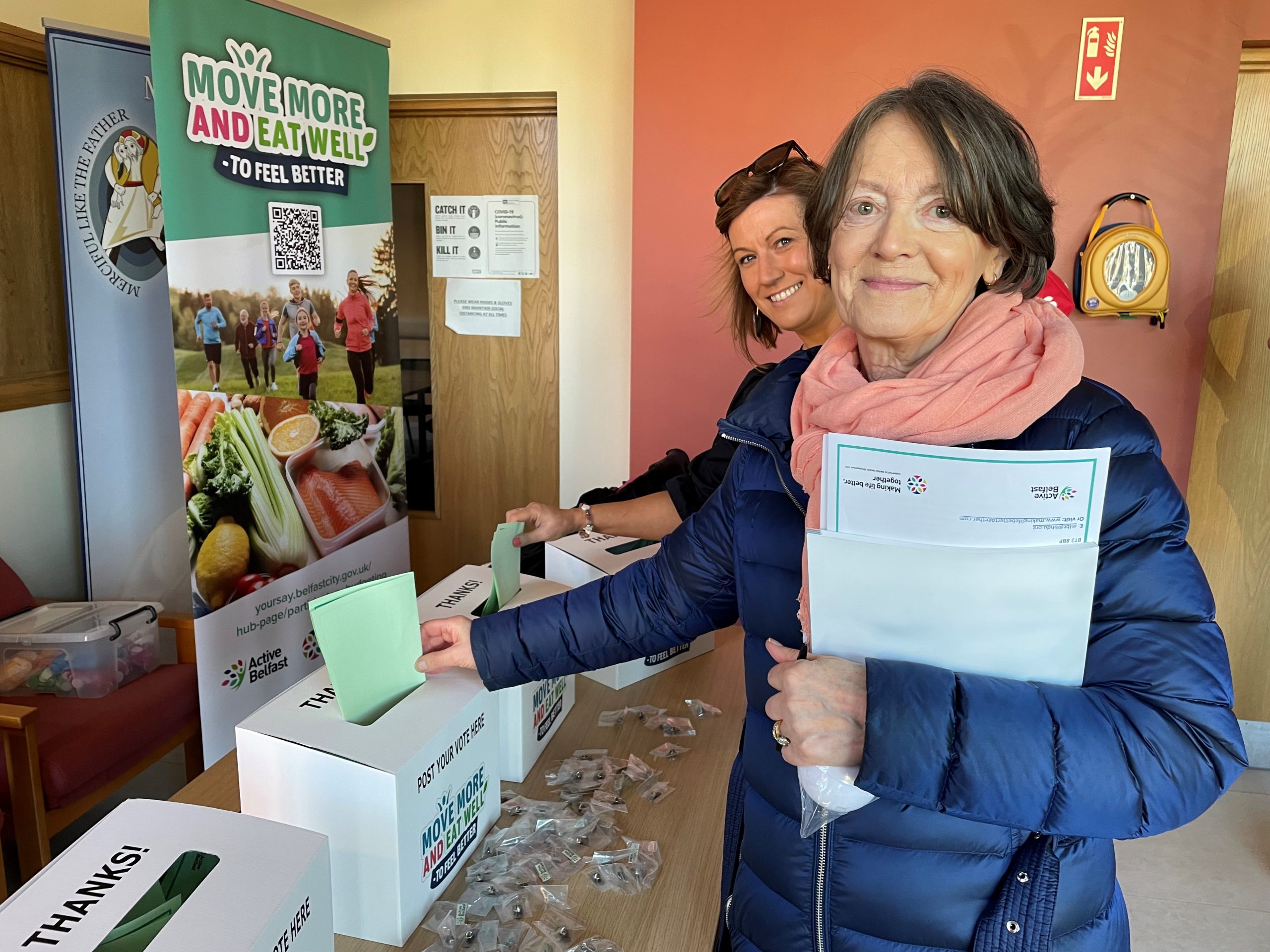What Is
Participatory
Budgeting?
PB can be used to allocate spending from a range of sources including: Local Councils; Housing Associations; Schools; Public Health Trusts; Police and Community Safety Partnerships; Social Enterprises; Trusts and Charities.
PB is much more than just deciding how resources are allocated. It provides opportunities to engage in non-traditional ways that reach out to people who don’t often have a voice and it can become a celebration of positive action in the community.

Participatory Budgeting
in Three Simple Steps
1. IDEAS GENERATED
Ideas are generated on how to spend a public budget
2. PEOPLE VOTE
Ideas are pitched and people vote for their priorities
3. WINNING PROJECTS FUNDED
Votes are counted and the community’s priorities are funded
Why PB?
The benefits of Participatory Budgeting
Effective Participatory Budgeting processes can:
- Increase levels of participation and engagement – it is a practical way of getting involved in your community
- Improve trust and relationships between citizens, public sector officials, elected representatives and the private sector
- Improve the way public money is spent
- Empower citizens
The Origins
Participatory Budgeting began in the city of Porto Alegre, Brazil in 1989. After a military dictatorship public resources were running dry and democracy needed to be done differently. PB was so successful here, that by 2001 more than 100 cities in Brazil had implemented PB. Participatory Budgeting is now practised in over 3,000 cities worldwide. It has been identified as good practice by the World Bank; UNESCO; OECD; UN and the Department for International Development.
Closer to Home
Triangle Housing Association delivered the first PB events in Northern Ireland in November 2016. Triangle hosted sessions in Antrim and Coleraine which gave residents from 25 Supported Living schemes the opportunity to develop, present and vote on ideas to promote social inclusion within their units. The process included ‘Vote for Fun’ days where residents pitched their ideas ranging from musical instruments to gardening equipment.
Values and principles
Local Ownership: Residents should be involved in setting budget priorities and identifying projects for public spend in their area wherever possible.
Direct Involvement: PB should involve direct as well as representative engagement.
Support for Representative Democracy: Participation mechanisms such as PB should be seen as supporting representative democracy rather than undermining it. PB can increase citizens’ trust in councillors and boost the role of councillors.
Mainstream Involvement: Over time PB processes should move towards residents being involved in decisions over mainstream budgets (as opposed to only small grant processes).
Accessibility: Participants must have good and clear access to PB processes.
Transparency: PB processes are designed to give citizens full and clear knowledge of public budgets in their area, even those over which they do not have a direct say.
Deliberation: PB processes should take citizens beyond personal choice and involve real deliberation around budget decisions.
Empowerment: Citizens, officers, councillors and partners should plan and lead PB events together, demonstrating local people’s empowerment.
Shared responsibility: PB should build common purpose and a commitment from all stakeholders.
Models of PB
Participatory Budgeting can take many forms and new and innovative processes are continually being developed. However, these are the three broad models shaping practice in the UK.
Small Grant Allocation
Funding for an area or theme is distributed using PB. Local groups propose and present projects and then residents vote for the projects which they think should be funded.
Devolved funds to wards or neighbourhoods
This normally takes the form of council or statutory partner funding devolved to where services are delivered on the frontline. The funding may be used for public or voluntary sector projects. Proposals can be presented at a public meeting and people vote on what the fund should be allocated for.
Mainstream Investment
All citizens within an area can vote on how public money is allocated and are also involved in deciding what the priorities for the area should be.
Join the PB Network
The PB Works Network is free and open to anyone who is interested in participatory budgeting.
Network members are invited to contribute their ideas, learning and enthusiasm to advance PB across the region.